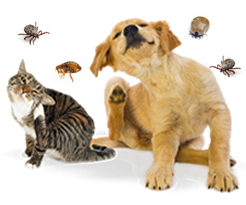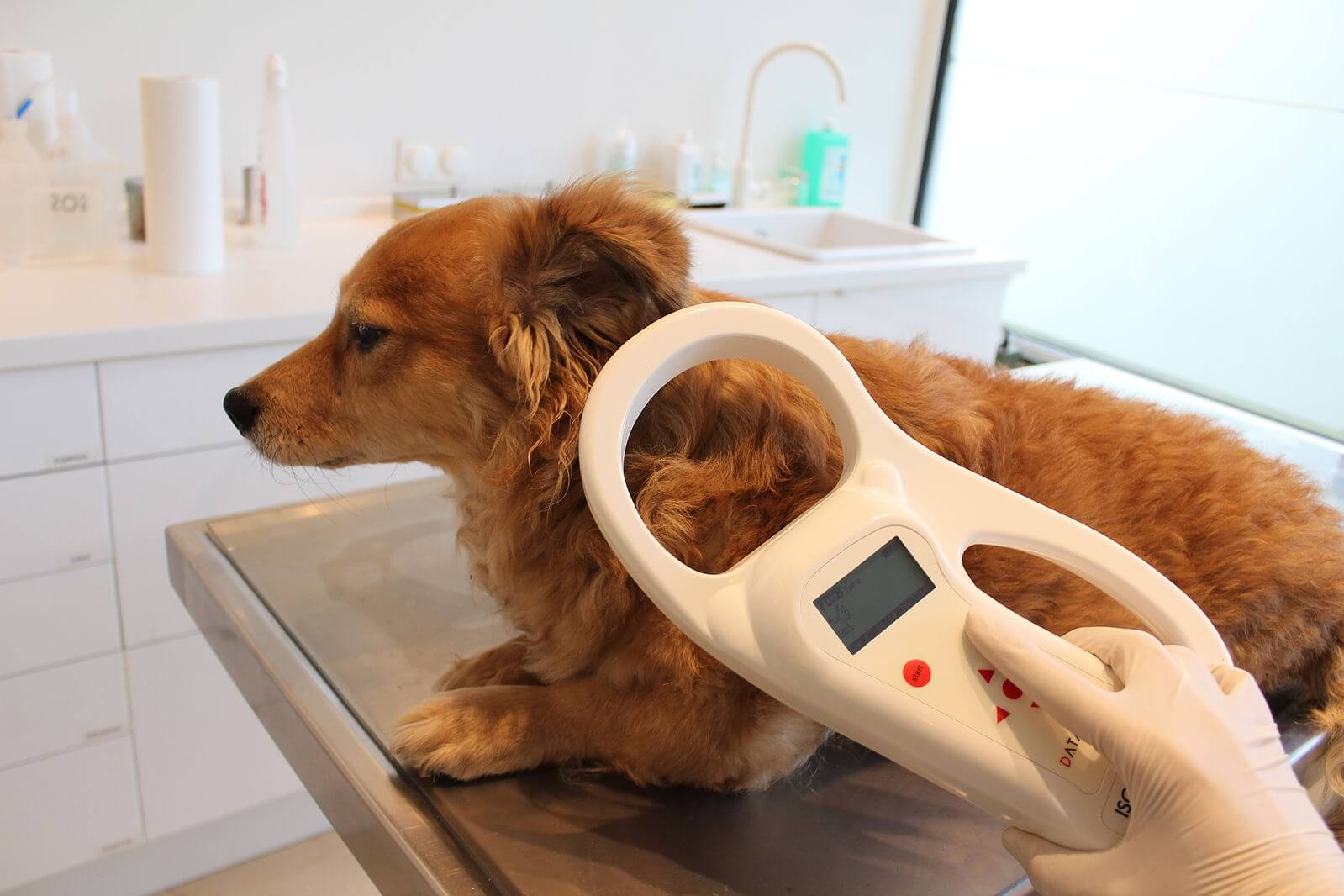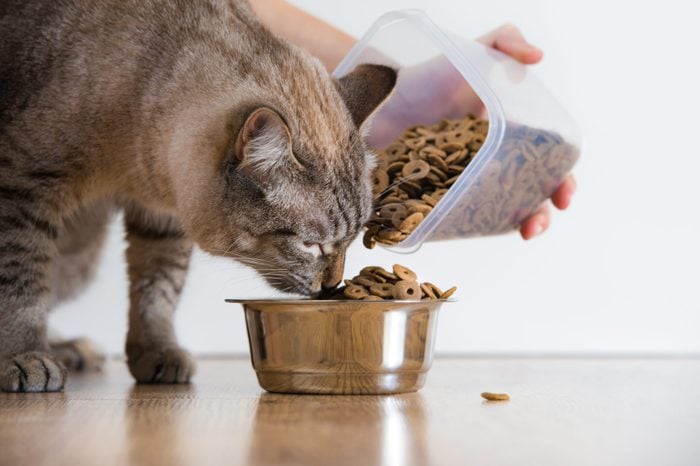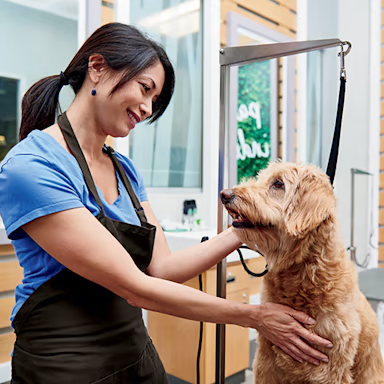Whether you have just adopted your first pet or you have had your pet for years, it’s important to take them to the veterinarian at least once a year to make sure they are healthy and staying that way. In addition to annual checkups, you should visit the vet whenever your pet gets injured or sick, as well as any time you notice something different about their health that makes you feel uneasy about it. Read on for 10 of the most important veterinary services your pet needs at Petco.
1) Vaccinations
 Most of us know that vaccinations are vital to keeping our pets healthy, but it can be hard to remember which ones they need and when they need them. Fortunately, there are lots of services and reminders available to help. An annual wellness exam is a great way to get a lot of different checkups in one visit. Plus, an annual vaccination booster may be included in your pet’s package as well! You can also opt for individual shots or booster packages for rabies, parvo virus, feline leukemia and more. Whatever you decide is best for your pet, make sure you keep their shots up-to-date!
Most of us know that vaccinations are vital to keeping our pets healthy, but it can be hard to remember which ones they need and when they need them. Fortunately, there are lots of services and reminders available to help. An annual wellness exam is a great way to get a lot of different checkups in one visit. Plus, an annual vaccination booster may be included in your pet’s package as well! You can also opt for individual shots or booster packages for rabies, parvo virus, feline leukemia and more. Whatever you decide is best for your pet, make sure you keep their shots up-to-date!
2) Parasite Prevention
 In case you didn’t know, both cats and dogs can be infected with parasites like tapeworms, roundworms, hookworms, or heartworms. Parasites are a problem for both humans and animals—they infect us as well—and it’s important to keep them under control. Many veterinarians recommend that owners of dogs and cats treat their pets for parasites on a regular basis (generally once every three months) to prevent these diseases from becoming too much of an issue. Heartworm prevention is especially important because if your pet becomes infected with heartworms, it can be dangerous or even deadly for them. Heartworms are a blood parasites that lives inside their host’s arteries and can severely restrict blood flow to vital organs. It’s important to start heartworm preventatives like Ivermectin as soon as you get your pet (you should consult your veterinarian about an appropriate regimen) so that they don’t become infected in the first place.
In case you didn’t know, both cats and dogs can be infected with parasites like tapeworms, roundworms, hookworms, or heartworms. Parasites are a problem for both humans and animals—they infect us as well—and it’s important to keep them under control. Many veterinarians recommend that owners of dogs and cats treat their pets for parasites on a regular basis (generally once every three months) to prevent these diseases from becoming too much of an issue. Heartworm prevention is especially important because if your pet becomes infected with heartworms, it can be dangerous or even deadly for them. Heartworms are a blood parasites that lives inside their host’s arteries and can severely restrict blood flow to vital organs. It’s important to start heartworm preventatives like Ivermectin as soon as you get your pet (you should consult your veterinarian about an appropriate regimen) so that they don’t become infected in the first place.
3) Spay/Neuter Surgery
 The most common of all veterinary services, spaying, and neutering is a key component in ensuring that no more animals enter shelters. The procedure may be scary to consider, but remember that it’s far kinder than allowing your pet to give birth to several litters. At Petco! They now treat a variety of health conditions and offer out-patient surgeries such as biopsies and lymph node extractions.
The most common of all veterinary services, spaying, and neutering is a key component in ensuring that no more animals enter shelters. The procedure may be scary to consider, but remember that it’s far kinder than allowing your pet to give birth to several litters. At Petco! They now treat a variety of health conditions and offer out-patient surgeries such as biopsies and lymph node extractions.
Spaying and neutering are procedures designed to make pets unable to reproduce, although they’re often also referred to as fixing or sterilization. Spaying involves the removal of a female pet’s ovaries and uterus; neutering refers to the removal of a male pet’s testicles. The surgery prevents unwanted litter, reduces certain types of undesirable behavior—such as roaming, yowling, and urine marking—and can even help prevent some cancers in animals that are sexually mature. It may sound scary, but spaying or neutering is an extremely common procedure for both dogs and cats, performed by veterinarians all over the world.
4) Dental Care
 Pets can’t brush their teeth, so professional cleaning is key to keeping them healthy. Regular cleanings will keep tartar and plaque from building up, which leads to bad breath and cavities. Even if your dog or cat doesn’t show signs of tooth decay, a pro cleaning is still a good idea to keep those pearly whites healthy and strong!
Pets can’t brush their teeth, so professional cleaning is key to keeping them healthy. Regular cleanings will keep tartar and plaque from building up, which leads to bad breath and cavities. Even if your dog or cat doesn’t show signs of tooth decay, a pro cleaning is still a good idea to keep those pearly whites healthy and strong!
Pets are like our children. They give us unconditional love, and we want to do anything to help them stay happy and healthy. You may think that brushing your pet’s teeth isn’t something you need to worry about, but it really is. You don’t want them getting bad breath or mouth infections that could lead to severe problems down the road. As with humans, oral health is closely linked with overall health in pets too, so regular cleanings and checkups are essential.
5) Microchipping
 It’s easy to think your pet will always be able to find its way home—even if you live in a dense city neighborhood or have a rambunctious golden retriever. But what happens when your pet gets lost and someone else finds him? That’s where microchipping comes in: The process of implanting a tiny chip that contains information about your pet into your dog or cat is simple and doesn’t hurt, and it could potentially reunite you with your four-legged friend. In addition to giving other owners vital contact information, microchipping gives vets crucial details they need to care for pets who might not otherwise get help.
It’s easy to think your pet will always be able to find its way home—even if you live in a dense city neighborhood or have a rambunctious golden retriever. But what happens when your pet gets lost and someone else finds him? That’s where microchipping comes in: The process of implanting a tiny chip that contains information about your pet into your dog or cat is simple and doesn’t hurt, and it could potentially reunite you with your four-legged friend. In addition to giving other owners vital contact information, microchipping gives vets crucial details they need to care for pets who might not otherwise get help.
6) OTC Medications
/labrador-dog-lying-next-to-bottle-of-pills-and-medication-close-up-200467829-001-5887deaf5f9b58bdb3a18a10.jpg) From over-the-counter medications like pet pain relievers and first aid treatments to flea and tick products, we offer a variety of options for your furry friends. Not only can we provide you with everything you need to keep your pets healthy, but we can also help with special needs or conditions. These include anxiety, arthritis and heartworm medications that promote mobility and quality of life. Talk to us about finding solutions for fleas, ticks and other parasites that will keep your pet happy and healthy all year long. Remember: be sure to always follow up with your veterinarian before trying any new treatments on your pets; it’s better safe than sorry!
From over-the-counter medications like pet pain relievers and first aid treatments to flea and tick products, we offer a variety of options for your furry friends. Not only can we provide you with everything you need to keep your pets healthy, but we can also help with special needs or conditions. These include anxiety, arthritis and heartworm medications that promote mobility and quality of life. Talk to us about finding solutions for fleas, ticks and other parasites that will keep your pet happy and healthy all year long. Remember: be sure to always follow up with your veterinarian before trying any new treatments on your pets; it’s better safe than sorry!
7) Adoption Procedures

Before taking home a new pet, it’s important to learn about adoption procedures. These steps help ensure that your new pet is healthy and ready for its forever home: It will have been checked by a veterinarian and spayed or neutered. It will be current on vaccinations.
It will have been tested for common illnesses and parasites like ringworm, heartworms, or feline leukemia. It may have been microchipped as well. The adoption center may also keep its previous medical records on file to share with you. Talk to a veterinarian about your pet’s specific needs and make sure you know what’s covered under your new pet’s health insurance policy. A head start is better than any insurance policy!
8) Nutrition Education and Diet Plans
 The right nutrition can do a lot to boost your pet’s health. Feeding your pet a high-quality diet with all of its required nutrients, avoiding feeding it food that could be harmful or cause allergic reactions, and learning how to feed your pet properly will go a long way toward extending its life and giving it an overall better quality of life. Most importantly, keep in mind that if you’re not sure about what food you should be feeding your pet or whether it has been receiving proper nutrition, ask your veterinarian for guidance. Feeding your pet a healthy diet is one of best ways to improve its health.
The right nutrition can do a lot to boost your pet’s health. Feeding your pet a high-quality diet with all of its required nutrients, avoiding feeding it food that could be harmful or cause allergic reactions, and learning how to feed your pet properly will go a long way toward extending its life and giving it an overall better quality of life. Most importantly, keep in mind that if you’re not sure about what food you should be feeding your pet or whether it has been receiving proper nutrition, ask your veterinarian for guidance. Feeding your pet a healthy diet is one of best ways to improve its health.
9) One-on-One Training Lessons

10) Grooming Services

. If you’re not sure how often to brush your pet, check with your vet. He or she can help you figure out what works best for your furry friend.













